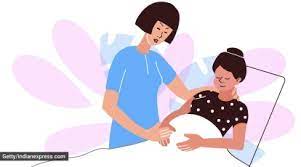Contents
It doesn’t take much to slip into an addiction. Before you realize it, your life can be spiraling out of control, with little you can do to step away from the chaos. For many, drug addictions start small. You can start with something seemingly benign, such as getting high up with friends.
Drugs – even the seemingly ‘soft’ ones – comprise complex, dangerous compounds that can cause easy dependence. Before you know it, recreational use can escalate into an addiction that can be challenging to break.
However, no matter how difficult it may seem, breaking free from addiction is doable. The process can be challenging, but you can make it through with determination. Following certain steps can make it easier. If you’re looking for ways to make it easier to beat your addiction, keep reading below.
Head to a rehab center
Working through addiction alone can be daunting. Even if you have loved ones around you, it can be challenging for them to comprehend what you need. Unknowingly, they can say or do things that can affect your recovery and push you to use drugs again. Additionally, you can encounter several triggers in your environment, making it hard to break the habit.

A rehab center is your best bet to break the cycle in such cases. Heading to rehab can also be an excellent choice when you’re in the later stages of dealing with an addiction. These first few days can be painful, and you have to deal with withdrawal symptoms. These symptoms can be physical and psychological and can be very dangerous to manage independently. It can be challenging to deal with such symptoms at home, and heading to treatment centers can be the only way to deal with your addiction safely. So search the internet for some options.
Adjust to sobriety
Addiction isn’t something that occurs in a bubble and stays limited to only certain aspects of your life. Instead, it can be an all-encompassing thing that alters your lifestyle entirely. Over time, you can forget what it’s like to be sober altogether. When you start returning to a sober life, you can find it challenging to adjust. It can be challenging to remember how to enjoy things without the high and even harder to adjust when you’re unoccupied.
Learning to adjust to sobriety must be a consistent process, and with time you can appreciate the benefits of staying sober. One of the most notable factors to consider is how sobriety brings immense clarity and helps you make informed decisions. As you stay sober, you can make time for meaningful activities that improve your life instead of tearing you down. Breaking free from an addiction can be a life-changing event, and sobriety can help you find a higher purpose.
Reconnect with loved ones
When you’re caught in the throes of an addiction, nothing else can seem to matter. Cravings can be so strong that they can overshadow all your sensibilities and push you to act in ways that leave you isolated. Addicts can also become manipulative, violent, abusive, and intolerable, which can severely impact their relationships.
However, support from your loved ones is vital if you want to recover. Several studies highlight how healthy relationships can be a huge predictor of abstinence and help you maintain sobriety. Addiction isn’t a linear path, and you may have down days where you’re tempted to fall back into harmful patterns. A supportive figure can keep you motivated during these days and can push you to be your best self. Having meaningful relationships can help you find greater meaning in staying sober.
Identify your triggers
Just as you may have certain people who push you to be better, you may have people, events or emotions that push you to use drugs. Identifying your triggers is a vital step in beating your addiction, otherwise, you’ll find it hard to break free from the cycle. Triggers can be pretty complex and, at times, challenging to overcome. You may have to cut out toxic people who prompt you to abuse drugs or people who make you feel hurt, anxious, or pressured into using.
It can also include steering clear of places where you used drugs and avoiding situations where you know drugs may be present. For many, this can mean a complete overhaul of life. However, drastic steps are essential if you want to break free from this vicious cycle for good. If you’re having trouble identifying your triggers, speaking to a therapist can help you identify and deal with emotions, situations, and people detrimental to your recovery.
Stay distracted
When you’re in the early stages of your recovery, a wandering mind can push you close to slipping up. Having nothing to do can lead to cravings creeping upon you, and spending too much time idle can be dangerous for your recovery. Instead, it’s important to find distractions to help you think of other, more productive activities. A distraction can be anything, ranging from spending time with friends to working a job. However, it’s important to find something regular.
Consistency and routine are vital at every stage of your recovery and can also help you improve your self-worth. Whether you’re working out, studying, reading, painting, making music, or doing anything else you enjoy, these activities can help you avoid thinking of using drugs. Additionally, working on a skill or job can help you boost your self-confidence. It can make you feel like an able, productive person again and like someone who can give back to society instead of harming it. Putting your energy into honing a skill can help you beat your addiction over time.
Conclusion
Falling prey to addiction can leave you feeling lost and isolated, and it can be incredibly challenging to think of ways to turn your life around. However, if you follow the tips mentioned above, you can start seeing some immensely positive changes in your life. It can take consistent effort to break free from an addiction, whether it’s hard drugs or soft drugs. Sticking it through even when things get tough can help you restore normalcy in your life.
That was it for this article. If you found it helpful, consider checking out our blog STORIFYGO!





